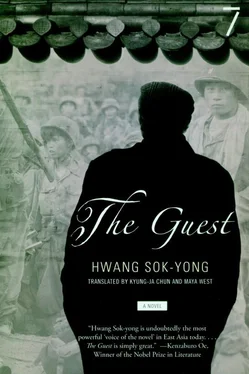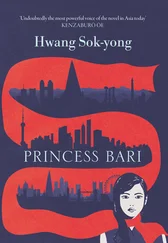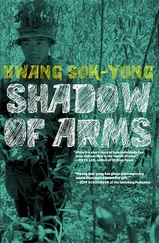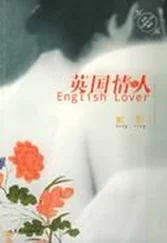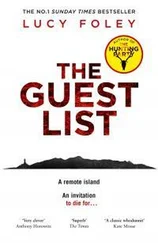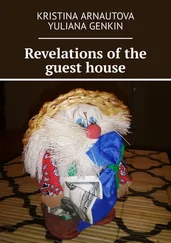Cho Sunwŏn. Ten years old at time of incident. Father was Committee Chairman of Party Cell. Witnessed father being beaten to death with clubs by large crowd. Final interrogation was held on November 1 according to lunar calendar. Nine o’clock that night they came with something wrapped in white cloth. It was live ammunition. Eighty-two women and children were dragged through landlord’s front yard to execution site. Were stood on hillside and shot. Sunwŏn’s six-year-old baby brother was shot first. Bullet went through his abdomen. He survived. Muttering that he was a tough one, they used bayonets. Sunwŏn suppressed the urge to scream. He bit his lips. Sunwŏn was hit by four bullets. All his younger siblings, including the baby on his mother’s back, were shot and killed. They sorted out the live ones from the dead and stabbed or beat them to death. At dawn, Cho Sunwŏn crawled out from under a pile of corpses. A ghost rose up from among the corpses. The ghost untied the telephone cords that bound Sunwŏn. The ghost of the woman who used to live next door. Cho Sunwŏn climbed up the mountain, dragging along another boy who wasn’t dead yet.

Yu Maemul. Currently acting Chair of Women’s League in Sinch’ŏn. They committed all sorts of atrocities to extract information concerning the hiding place of People’s Guerrilla Corps. Snatched three-year-old Ŭnja from mother’s breast and interrogated mother by dipping child in swamp. Later threw child into swamp. When the mother protested, they struck her head with a club. She died on the spot. Took Yu Maemul hostage while roaming around in search of Guerilla Corps. Thinking she was dead they discarded her on an icy road. Because of the resulting frostbite, Maemul spent the following fifteen years in different hospitals. Lost six toes.

Ri Inhwa. Nine years old at time of incident. Father was Committee Chairman of District Party Cell. Four men in village, including Inhwa’s father, were dragged by wire pierced through their noses. When father refused to respond to interrogation, they trampled her younger brother to death. Inhwa hid underneath the wooden floor.

Ah, finally they’re all through with their stories. But no, it’s not over yet, Yosŏp thought.
Yosŏp came out of the county hall and waited for the car that would take him back to the hotel. He stood under the dangling fruits and wide leaves of a fragrant sycamore tree. In the old days, on days like today, Big Brother Yohan and he had played war, using sticks for swords and wearing crowns made out of these huge sycamore leaves. Yosŏp took out his pocket Bible and thumbed through it. He turned to Ephesians:
For he is our peace; in his flesh he has made both groups into one and has broken down the dividing wall that is, the hostility between us. He has abolished the law with its commandments and ordinances, that he might create in himself one new humanity in place of the two, thus making peace, and might reconcile both groups to God in one body through the cross, thus putting to death that hostility through it. So he came and proclaimed peace to you who were far off and peace to those who were near; for through him both of us have access in one Spirit to the Father.
Yosŏp felt tears welling up in his eyes. In the hazy distance, he spotted the approaching vehicle. Sitting in the passenger seat was the guide — he’d left earlier to fetch the car. Another man sat in the back seat. He opened the door for Yosŏp then scooted further in. It was his nephew, Daniel, whom he had parted with yesterday. When Yosŏp got in, Ryu Tanyŏl addressed him in a tone much more courteous than before.
“Comrade Assistant Chief has asked me to spend some time with you, Uncle.”
Realizing for the first time that All Back must be the Assistant Chief, Yosŏp showed his appreciation by bowing his head.
“Thank you for your consideration.”
“Well, there was an order from above — we’re going to let you take it easy today. You may go to your hometown with your nephew. The inns here aren’t suitable, so I’ll take you to the guesthouse.”
The car raced along a tree-lined avenue that sliced through the rice paddies. Scores of young men and women in shabby working clothes were marching along the lane. Each one was armed. They looked like some sort of farm village army reserve. They made their way through the field, slowly, without a single look towards the speeding car.
5. A Pure Spirit
CLARIFICATION BEFORE RECONCILIATION
THE GUESTHOUSE WAS BUILT in the style of an old-fashioned inn. Immediately inside the front door was a large hall for receptions and conferences. Farther in, there was a small dining hall and a kitchen. Beside the reception hall was a corridor, and at its end was a common room. The bedrooms were all lined up along the left side of the corridor. On the right side, a series of glass doors looked out onto a backyard. The room assigned to Yosŏp and his nephew Tanyŏl was the VIP suite — it included a parlor, a study, and a bedroom. The Assistant Chief, All Back, had a different room at the far end of the corridor. After supper Yosŏp and Tanyŏl went out together to take a stroll around the guesthouse. It was surrounded by trees with broad leaves, providing an abundance of cool shade; farther off was a forest of pine trees. Uncle and nephew walked side by side along the narrow path that wound through the forest. The cool evening breeze was quite pleasant, and though it was still fairly light out, the crickets had already begun to cry. The path was a gravel one so they were accompanied by the crunching sound of their steps.
“Your mother. does she still have her faith?”
Yosŏp asked the question without turning to his nephew, looking straight ahead, and Tanyŏl kept his gaze fixed on the ground as he answered.
“My mother doesn’t talk about the past.”
“Not even about your father?”
“No.”
“Then how do you know so much about him?”
Silent, Tanyŏl just kept on walking. Yosŏp was thinking that here, now, they could finally throw caution to the wind; they were outside, and no one was around to listen in but the pine trees.
“You, you know your father’s name, and you seem to know about his past—”
“ Everybody knows about his past. I heard about it constantly, all through my childhood. Grandfather Some told me a little bit, too.”
“Does he still live in the same village?”
“Yes. He’s a guard at the farm library now. He’s helped our family enormously. It’s only because of his pull that I was able to join the party at all.”
Tanyŏl stopped abruptly in his tracks and turned to face Yosŏp, staring him straight in the face.
“Think about it. Do you have any idea what it was like for us? No one in the village would speak to us. Children at school didn’t want to have anything to do with me. All we could do was go to the Cooperative Farm, do what work was allotted us and get our food rations. That was my life, my whole life, until I turned fifteen. Then, thanks to Grandfather, I was able to move to Some. And now, now that I’ve barely managed to inch my way out from under the shadow of the crimes committed by the man who was my father — now you’re here, trying to uncover the past. I mean, if you’d only just leave us alone, we might finally be living a quiet life.”
“There is an old saying that goes ‘Start by plucking a hair, end by killing a man.’ It is also said, ‘Two hands must meet to make a sound.’ The atrocities that happened here weren’t carried out by strangers — it was us, the people who’d once lived together harmoniously in the same village.”
Читать дальше
